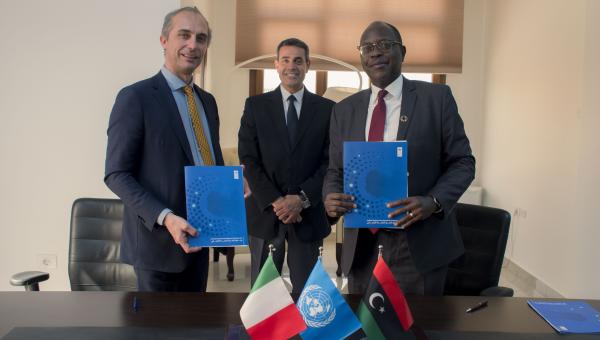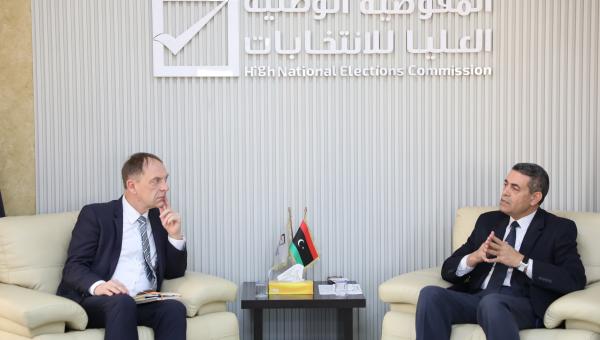Promoting Elections for the People of Libya
Introduction
National elections represent a major milestone in the Libyan-led and Libyan-owned political process, facilitated by the United Nations (UN). They are also a critical step toward national unity, peace and stability.
Since its establishment in 2012, Libya’s High National Elections Commission (HNEC) has conducted three national elections with UN support. While the dates of future national elections are yet to be determined, the Commission must be prepared to hold them, when they are called.
Approach
PEPOL is implemented by the United Nations Electoral Support Team (UNEST), comprising experts from UNDP and the UN Support Mission in Libya (UNSMIL). Under the strategic guidance of the Mission, UNEST provides direct, on-site technical advice and support to the HNEC Commissioners and their staff. In particular, the project is designed to:
- Support the planning, preparation for and conduct of electoral events.
- Develop HNEC institutional and staff capacities to conduct electoral processes that are transparent, credible and that promote inclusive participation.
- Promote public participation in electoral processes – particularly among groups who are prone to exclusion.
- Raise electoral awareness of local partners and institutions, equipping them to perform their roles effectively.
Impact
The election of national leadership is a critical to step in moving forward from Libya’s transitional governance arrangement.
Democratic processes are a way to move toward peace and stability, foster a culture of accountability and good governance, in which human rights can be delivered and development sustained.
Elections also contribute to the achievement of Sustainable Development Goals, including SDG 16 to promote peaceful and inclusive societies for sustainable development, provide access to justice for all and build effective, accountable and inclusive institutions at all levels; and SDG 5 to achieve gender equality and empower all women and girls.
Achievements
- Enfranchisement of Libyan voters, including those who are marginalized, internally displaced or out-of-country
- Greater efficiency and security of voter identification and election information
- Stronger data security and results management systems
- Safe delivery, management and storage of election materials
- Continuous development of HNEC staff skills and expertise
- Purposeful data collection, research and analysis
- Expanded Commission membership in regional and international election networks
- Strengthened security of HNEC premises and staff, and operational plans allowing for the continuation of work even in pandemic situations
- Cultivation of a more inclusive and participatory electoral environment
More about the project

 Locations
Locations



